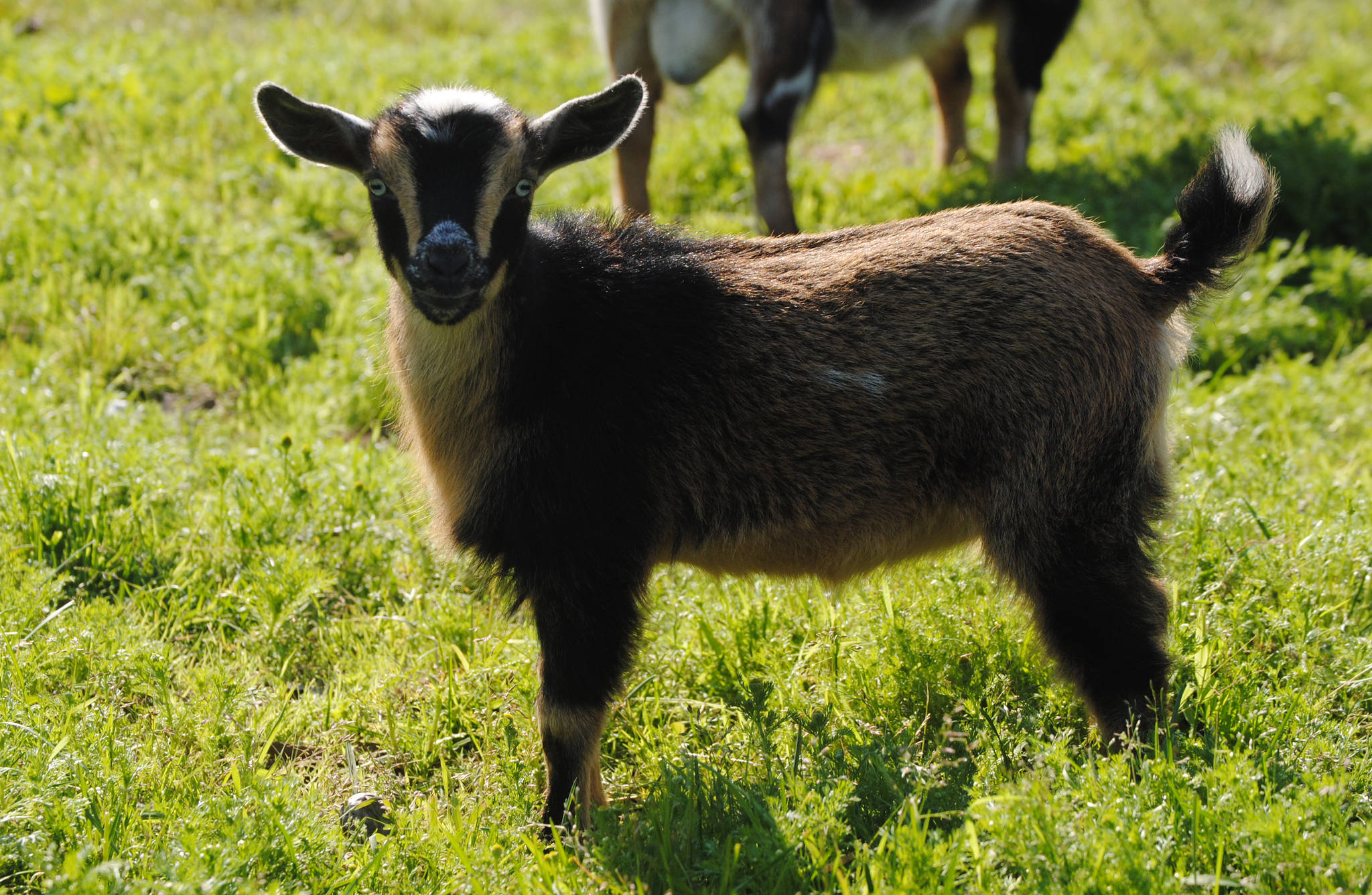Correction: This article has been updated to reflect the correct name of the bacterium and the correct sponsor of the study.
The Office of the State Veterinarian is looking for Alaska sheep and goat producers willing to participate in a study to determine the prevalence of a pneumonia causing bacterium that has ravaged the bighorn sheep populations in the Lower 48.
The study, which is sponsored by the USDA Agricultural Research Services, is analyzing samples from domestic sheep, goats and wildlife in Alaska to study respiratory issues and the presences of the bacterium Mycoplasma ovipneumoniae (Movi). It will help determine if domestic sheep and goats present a risk of passing the bacterium to wild sheep and goat populations, according to a release from the Alaska Farm Bureau.
Participants in the study will be surveyed and asked about their farm management practices before samples are collected from the animals. Those interested in participating should contact the Office of the State Veterinarian at 907-375-8215 or visit their local veterinarian.
“The study is confidential,” the release states. “And there will be no charge for running the diagnostic tests. To help keep costs down for sheep and goat owners, the Alaska Farm Bureau will cost share with members who participate in this study. The Alaska Farm Bureau will reimburse Farm Bureau members up to $200 for the first vet visit and $100 for the second and third visits.”
The Office of the State Vet is hopeful they will receive a lot of volunteers in order to obtain a large and representative set of data. Currently, little is known about the bacterium and the impact, if any, it has on wild sheep and goats in Alaska.
“(The study) is not an answer, it’s just so we know what we’re dealing with,” Amy Seitz, executive director of the Alaska Farm Bureau, said.
In 2016, the bacterium spurred the Wild Sheep Foundation to propose the removal of domestic sheep and goats from the “clean list.” The proposal, known as Prop 90, would have added permit and fencing requirements for sheep and goat owners within 15 air miles of Dall sheep habitat. It was met with public outcry and tabled until this coming November.
On the Kenai Peninsula, goat and sheep owners objected to the proposal on the grounds that it is unnecessary and could infringe on small farmers.
“Removing sheep and goats from the clean list would impose some pretty pesky restrictions,” Seitz said. “So, Board of Game postponed a decision on the proposal and it’s going to come up this next cycle and … we were told to find an agreement.”
In response, the Sheep and Goat Working Group, organized by the Alaska Farm Bureau, brought together representative from impacted parties including the Alaska Wild Sheep Foundation, state agencies and sheep and goat owners, according to the Office of the State Veterinarian.
While the structure of farms in Alaska lowers the risk of disease transmission, according to the State Vet, concerns for the wild sheep and goat population are not unfounded. In the western U.S., bighorn sheep populations have seen drastic population drops of up to nearly 95 percent, which are attributed to the bacterium.
Reach Kat Sorensen at kat.sorensen@peninsulaclarion.com

